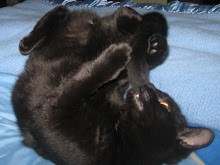It's become abundantly clear, lately, that police officers in America do not like added scrutiny provided by amateur and professional photographers and cell phone users. Unfortunately, this finding also coincides with a massive revelation that police officers often think that they are above the law, and can inflict violence whenever their little hearts desire, even to the point of murder. Many of them do not even understand the United States Constitution, much less respect it.
The good news is that those of us who take pictures of police officers and grab cell phone video of our tax dollars being spent are, according to the law, within our constitutional rights. No police officer has a right to shut down a news team or a private citizen taking pictures. The only loophole, in certain states, has to do with wiretapping laws: recorded audio cannot be deliberately captured and shared in all locales. But then, an officer carrying out his duties in public is not a private conversation, so the wiretapping laws do not apply in those instances.
The American Civil Liberties Union has found itself defending cases involving private citizens with cell phone and corporations such as television stations because of this issue with police officers and photography. As recently as the second week of August, police in Ferguson, Missouri did not want their tear gas activities photographed and recorded by journalists, so they handcuffed and arrested a couple from the Huffington Post and the Washington Post. As it happens, the only laws broken were broken by police.
Why is accountability so difficult for law enforcement to accept?
The good news is that those of us who take pictures of police officers and grab cell phone video of our tax dollars being spent are, according to the law, within our constitutional rights. No police officer has a right to shut down a news team or a private citizen taking pictures. The only loophole, in certain states, has to do with wiretapping laws: recorded audio cannot be deliberately captured and shared in all locales. But then, an officer carrying out his duties in public is not a private conversation, so the wiretapping laws do not apply in those instances.
The American Civil Liberties Union has found itself defending cases involving private citizens with cell phone and corporations such as television stations because of this issue with police officers and photography. As recently as the second week of August, police in Ferguson, Missouri did not want their tear gas activities photographed and recorded by journalists, so they handcuffed and arrested a couple from the Huffington Post and the Washington Post. As it happens, the only laws broken were broken by police.
Why is accountability so difficult for law enforcement to accept?



No comments:
Post a Comment
Critical Thinking. The Final Frontier.